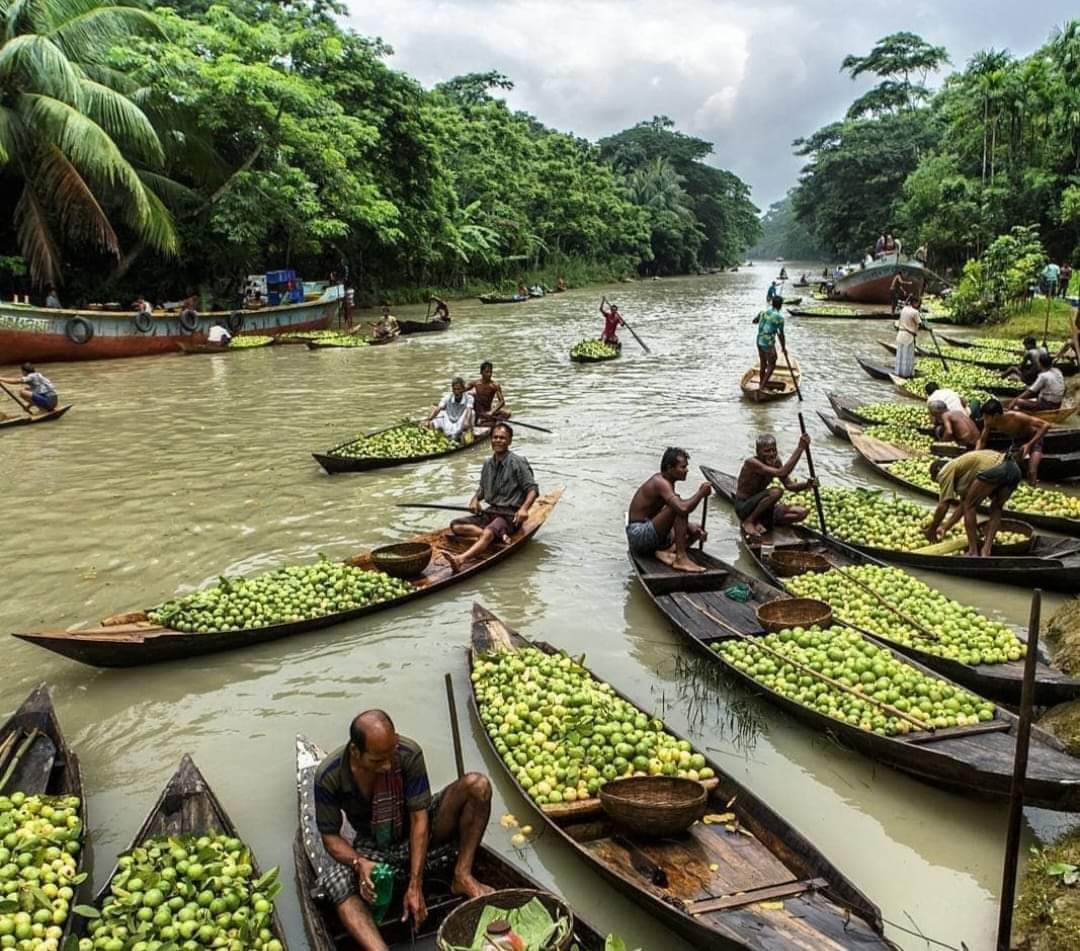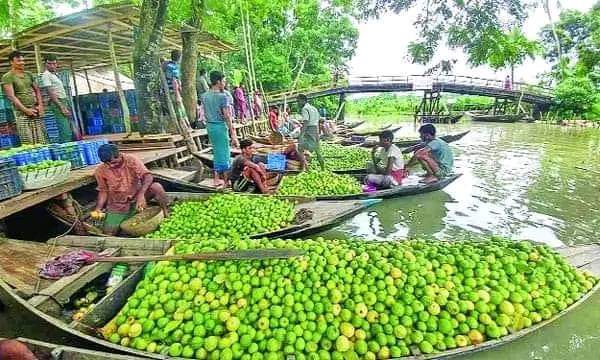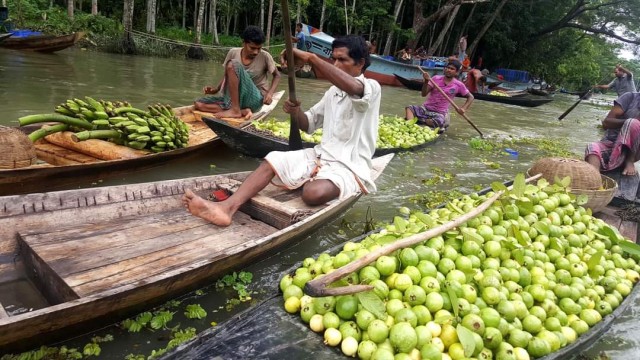Jhalokathi, July 20 (V7N) — During the months of Asharh, Shraban, and Bhadra (June–September), also known as the guava season, Bhimruli village hosts a unique floating market on the Khals (canals) that stretch along the borders of Pirojpur and Jhalokathi. Thousands of visitors from across the country come to witness the lush green guava groves and breathe in the sweet aroma of ripe guavas.

At the heart of this vibrant tradition, small dinghies laden with green and yellow guavas gather on the water, creating a lively canal market. Farmers paddle their boats laden with fruit, calling out to buyers while their vessels gently rock under the fruit’s weight. Buyers, both wholesalers and retailers, negotiate prices from the water.
Villager and farmer Zahid Mia noted that despite worries about drought and blossom disease earlier in the season, this year’s harvest has been robust. Initially, guavas sold for Tk 800–1000 per 40 kg maund but prices have since fallen to Tk 200–280 due to abundant supply.

In the Bhimruli floating market alone, roughly 10,000 maunds (400 metric tonnes) of guavas are sold daily during peak season. Another floating market operates in neighboring Pirojpur’s Sworupkathi and Kuriyana, with over 31,000 acres under guava cultivation spanning 36 villages in southern Bangladesh. Approximately 7,000–8,000 workers depend on this seasonal economy.
Despite widespread production, a lack of cold storage and processing facilities often forces farmers to sell the fruit while it's still fresh. Without proper preservation, guavas spoil rapidly, limiting farmers’ income and interest in continued cultivation. This season, the orchards have also been affected by “chitporar” guava blight and erratic rainfall.
.jpg)
Local trader Liton Haldar said that roads from Baukathi through Bhimruli to Kirtipasha could enable direct truck transport of guavas to major cities, allowing higher profits for farmers. Currently, guavas are shipped primarily by boat to Dhaka, Chittagong, Khulna, and other major markets.
Agricultural expert and district administrator, Md. Ashrafur Rahman, emphasized that establishing cold storage and processing plants could help stabilize prices, reduce spoilage, and sustain farmers’ livelihoods. Similar observations came from local growers like Bimal Mistry and Subhash Majumdar, who stressed that proper infrastructure and disease control are essential to preserve this regional specialty known as “Bangladesh’s apple.”
.jpg)
Despite these challenges, the annual floating guava market in Bhimruli remains a tourist magnet and a testament to community resilience and agricultural heritage.
END/AIJ/SMA/































Comment: